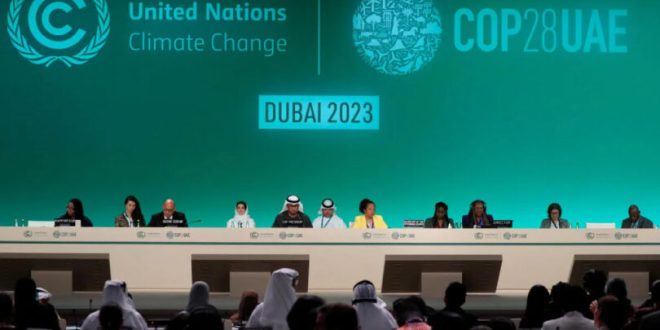AT News
KABUL – Once again, Afghanistan finds itself on the sidelines of the global climate change conversation, as the Taliban-led regime is excluded from the COP28 climate change conference.
In a stark turn of events from President Ashraf Ghani’s 2020 address to the UN General Assembly, where he highlighted climate change as a significant source of violence and suffering in the country, the current situation paints a dire picture of human suffering exacerbated by administrative breakdown and international apathy.
The Global Climate Risk Index places Afghanistan as the sixth most affected country by climate impacts, with projections indicating a troubling future. By 2100, the nation is expected to face rising temperatures and decreased water availability, posing severe threats to ecosystems that 80 percent of the population relies on for their livelihoods.
Recent years have seen Afghanistan grappling with consecutive droughts, each more severe than the last, punctuated by flash floods in 2023. The Taliban’s decision to dismantle the National Water Affairs Regulation Authority (NWARA) and the departure of technical experts following the regime change have further hindered the country’s ability to address water management and climate change impacts.
The Taliban’s neglect of climate-related initiatives, coupled with their exploitation of coal mines for revenue, has worsened the economic crisis and diminished international support for crucial projects. A multitude of initiatives aimed at renewable energy, carbon inventory creation, and climate-resilient agriculture have come to a halt, leaving millions, particularly farmers, vulnerable to disaster and hunger.
Despite these pressing issues, Afghanistan’s absence from the COP28 conference in Dubai in 2023 marks the third consecutive year of isolation. The Taliban-controlled NEPA attributes this exclusion to “political factors,” emphasizing the urgent need for international assistance to confront climate threats.
The international community faces a dilemma in engaging with the Taliban regime to address climate challenges. While such engagement risks legitimizing the regime, a recalibration of strategies, restarting stalled projects, and fostering civic engagement may offer a chance to mitigate climate-related disasters and potentially influence the Taliban towards moderation. Urgent action is essential to save lives and alleviate the profound impact of climate change on Afghanistan’s vulnerable population.
 Afghanistan Times
Afghanistan Times




